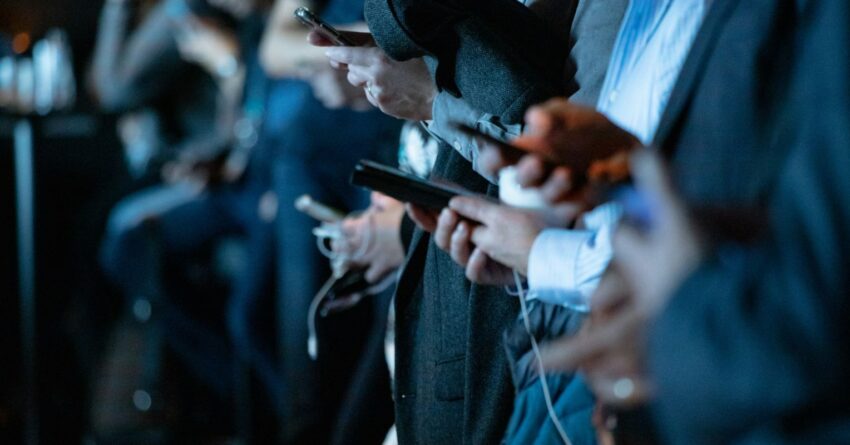Our world is more complex than ever, and this complexity is only exacerbated by the omnipresence of our devices (smartphones, iPads, and so on) and their impact on our daily functioning. These devices, for better or worse, affect our lives and, in turn, can lead to increased feelings of stress, anxiety, and worry. When we lose ourselves in the news cycle or mindlessly scroll through social media posts, we often experience burnout the likes of which can have a lasting impact on our mental health and our ability to be mindful and present in our lives. Awareness of the three psychological impacts of our devices described below can help us begin creating healthy boundaries with information, setting personal limitations on our exposure, and allowing us to step back into the present moment.
“Doomscrolling” and Constant Access to the News Cycle
Your cellphone likely offers you an unsolicited stream of news—mostly bad. My phone, for instance, comes with an unremovable news page on its home screen. Whether I like it or not, the current news headlines are there for me to see. Today’s include: “BBC journalist’s family members killed in suspected crossbow attack,” “Deadly strike on a Gaza school dashes hopes for a cease-fire,” and “Bird flu seems to be slowly mutating to better infect humans. Experts warn the time to act is now.” If those three headlines don’t make you experience some level of discomfort, I’m not sure what would. The point is that we are unceasingly and unwittingly exposed to tragic, violent, and potentially traumatizing stories. We no longer need to take the action of buying a newspaper or choosing to turn on the television news; we now carry these stories with us on a daily basis. The harmful effect on our psyche is immeasurable: If we are constantly exposed to negative stimuli, we begin to experience intense emotions such as anxiety and panic.
Anything to which we are overexposed can lead to negative symptoms. The news cycle and vicariously traumatic information are no exceptions. The keys to limiting these emotional responses are reduction and moderation. When we learn to limit exposure, understand our capacity for this type of stimulus, and create boundaries with the constant influx of information, we carve out more time and space for living our lives, and, as a result, persistent feelings of unease and anxiety subside. We can do this by taking an honest look at how much and how often we lose ourselves in the cycle of news so we can recognize where we can cut back and how we can remain informed without becoming unnecessarily traumatized or overly anxious.
Social Media and Comparison
In the 1950s, psychologist Karen Horney wrote of “shoulds” and how they can cause us to become self-critical and unhelpfully harsh toward ourselves. Three-quarters of a century later, social media has only amplified Horney’s point. The extent to which we compare ourselves to what we see on social media has reached a mental health crisis point. In my work with adolescents, this theme of comparison has become common to the teenage experience. Youth and technology expert Amanda Lenhart points out some distinct stressors that adolescents experience due to social media:
- Seeing people posting about events to which you haven’t been invited
- Feeling pressure to post positive and attractive content about yourself
- Feeling pressure to get comments and likes on your posts
- Having someone post things about you that you cannot change or control
Lenhart’s points, taken together, make it easy to see why social media breeds uncertainty, doubt, self-recrimination, and anxiety. Social media, like the news cycle, can easily become compulsive. It is important to recognize the potential psychological harm of viewing post after post of what others are doing, what their lives look like, and how ours compare. Creating boundaries with exposure to social media is vital in establishing a healthy balance between partaking in the benefits of social media (connection with others, sharing of ideas, and exchange of information) and not falling into the pit of self-comparison.
Mindlessness
If mindfulness means being “in the present,” mindlessness means being elsewhere. When we are lost in our devices, we are not present. Rather, we are distracted, disconnected from the moment, and out of sync with the here and now. It is common to scroll through our devices when we are bored or unstimulated, or simply out of habit and muscle memory. This type of mindless activity robs us of moments and takes us out of our lives. We survived before our devices were constantly at our side, so it stands to reason that we can also survive without them being so omnipresent.
In an age of connectivity, it is a radical act to allow your device to become secondary to what is happening in the moment. But doing this comes with countless benefits: You experience things more fully, you feel more connected to your daily life, and you focus on the “now.” Anxiety and worry are always future thoughts, so anything we can do to step back into the present can ease feelings of worry. Sometimes this means leaving our devices alone.
